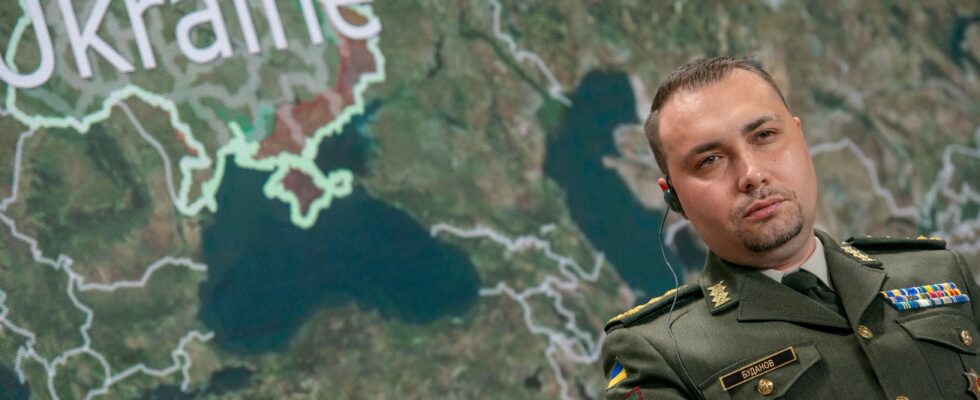US President Joe Biden and his Ukrainian counterpart Volodymyr Zelensky are expected to meet again in New York at the end of September for the UN General Assembly. At the heart of the discussions: a possible green light for Kiev to use long-range missiles, as well as additional funding requested by Ukraine to produce more military equipment on its own territory, while the country remains largely dependent on military aid sent – sometimes late – by its allies, in its war against Russia. Ukraine is also concerned about the significant military support provided by North Korea to Russia.
Key facts
⇒ Ukrainian General Kyrylo Budanov said Russia would try to end the war “before 2026”
⇒ US President Joe Biden to meet Volodymyr Zelensky in New York soon
⇒ Ukraine demands funding to triple its military production
Joe Biden to meet Volodymyr Zelensky in September
US President Joe Biden will meet his Ukrainian counterpart at the end of September at the UN General Assembly in New York. He “is determined to use the last four months of his term to put Ukraine in the best possible position to prevail,” White House National Security Adviser Jake Sullivan told the Yalta European Strategy forum in kyiv on Saturday, September 15.
On the diplomatic front, Volodymyr Zelensky is still demanding that his allies allow him to strike military targets deep inside Russian soil. But so far, the West, led by the Americans, has been hesitant to give a possible green light to kyiv’s use of long-range missiles, fearing that such a decision could be seen by Russia as an escalation.
Vladimir Putin said Thursday that if the West allowed Ukraine to strike Russian territory with longer-range missiles, it would mean that “NATO countries are at war with Russia.” Washington currently allows kyiv to strike only Russian targets in occupied parts of Ukraine and some in Russian border regions directly linked to military operations.
Reasons for the delay in US military aid
While Volodymyr Zelensky and other Ukrainian leaders continue to denounce the delays in Western military aid, particularly American aid, Jake Sullivan assured that this problem was not due to “a question of political will”, but to “a question of difficult and complicated logistics to deliver this material to the front”, he declared, Saturday, September 15, during the Yalta European Strategy forum in kyiv, in which he participated by videoconference.
Ukraine demands funding to produce missiles
In kyiv, a strategic affairs adviser, Oleksandr Kamyshin, also assured that his country was capable of producing more weapons itself but lacked the necessary funding. “All the production structures tell us: I can do more, but I need funding,” he said. Ukraine’s armament still relies mainly on Soviet-made stocks and those supplied by its Western allies. But it has significantly stepped up production of its own weapons since the start of the Russian invasion. According to the adviser, kyiv could produce three times as much with the right funding.
The North Korea problem
Among Moscow’s allies, North Korea represents “the biggest problem” for kyiv due to its massive supplies of artillery shells to Russia, Ukrainian military intelligence chief Kyrylo Budanov said Saturday. “With the volume of military products it supplies, it really affects the intensity of the fighting,” he said at the Yalta conference. North Korean authorities “supply huge volumes of artillery ammunition, this is critical for us,” he added, noting that Pyongyang also supplies ballistic missiles to Russia. North Korea denies the charge of supplying Russia, but the Conflict Armament Research investigative group said this week that debris analysis shows that “missiles produced this year in North Korea are being used in Ukraine.”
Will Russia end the war “before 2026”?
Ukrainian General Kyrylo Budanov, whose department is known for daring operations deep inside Russia, also estimated that Russia would try to end the war “before 2026” to avoid seeing its positions weakened due to the accumulation of economic problems caused in particular by Western sanctions and those of mobilization against a backdrop of significant losses on the front.
He brushed aside Western fears of an escalation in Europe’s worst armed conflict since World War II. “All these dilemmas: will there be an escalation or not? What escalation? There won’t be one,” he said, calling on Westerners “not to be afraid” of better arming Ukraine. The Ukrainians, for their part, will continue to fight, the military man assured. “We are fighting for our land and we have no other choice. We can’t say: I’m tired, that’s all, I’m leaving. That’s our strong point,” he said.
